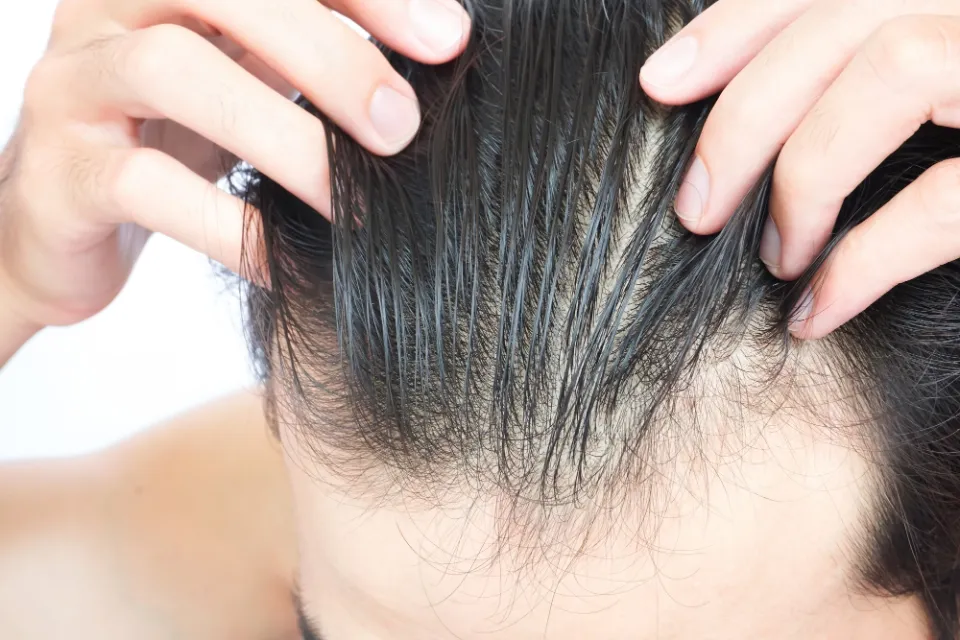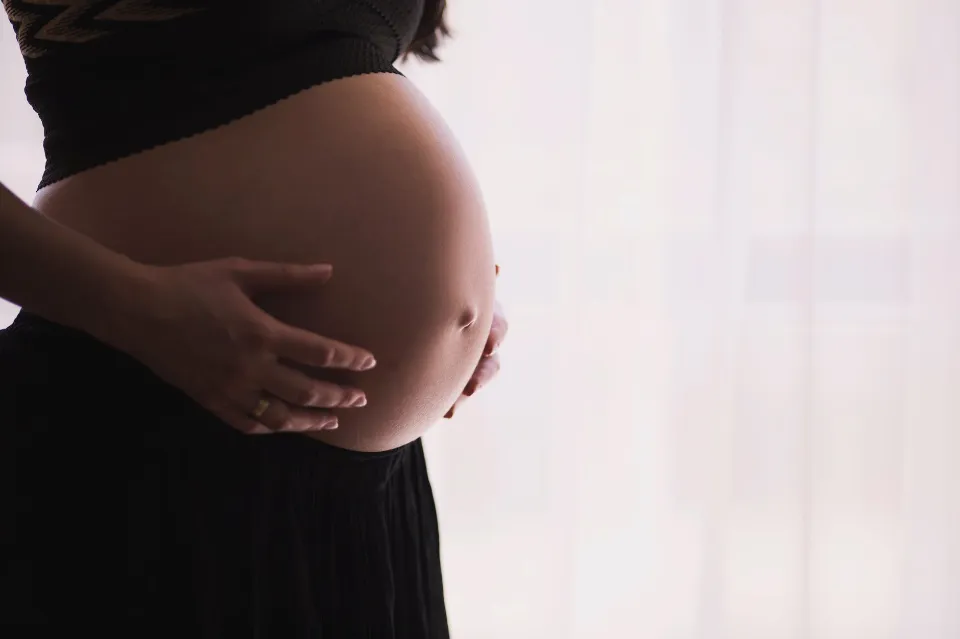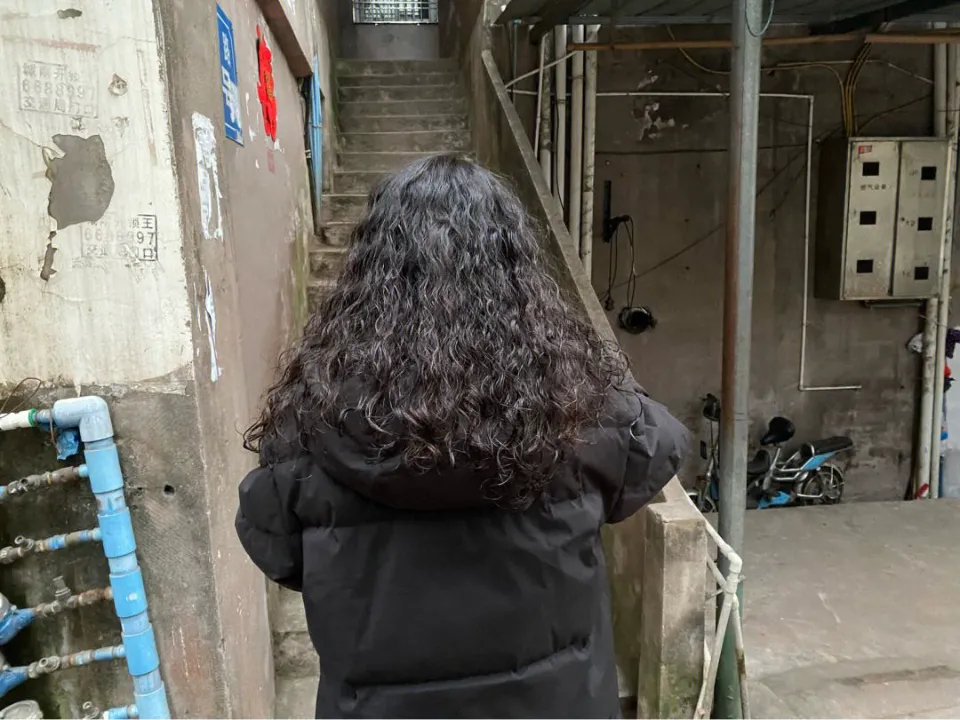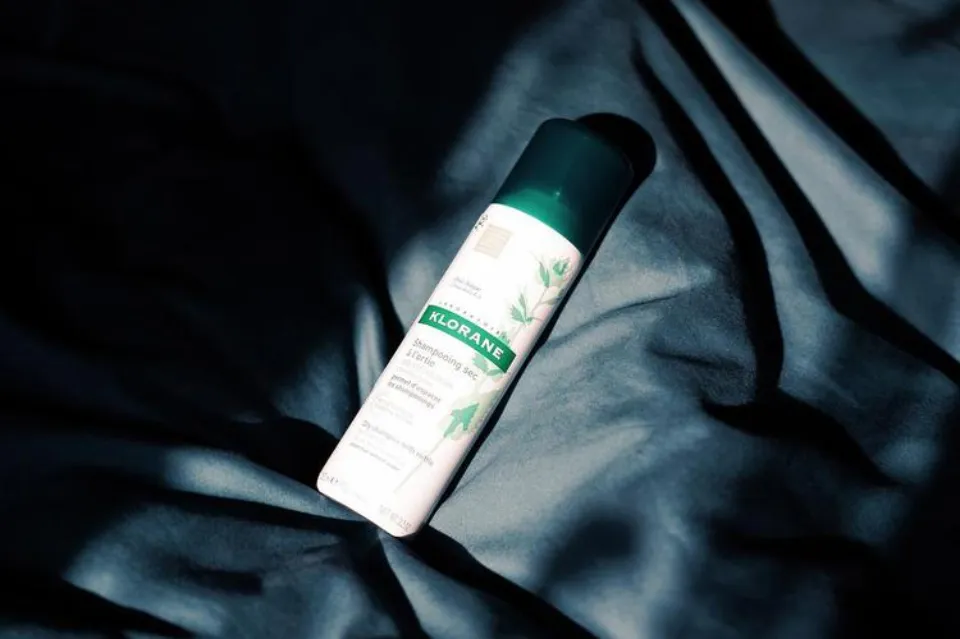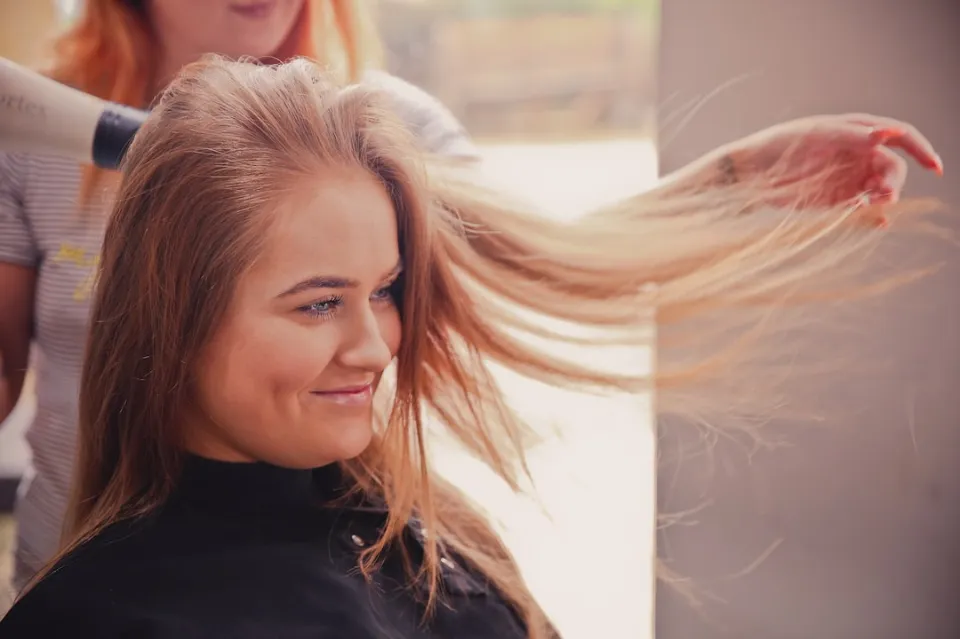Do you have questions about the reality of hair loss caused by isotretinoin? You’re not alone; dermatologists used to prescribe the medication isotretinoin under the brand name Accutane for severe acne. While hair loss is possible with isotretinoin, it usually only lasts a short while.
Yes, Accutane (isotretinoin) can cause hair thinning or loss by interfering with the normal cycle of the hair, but the hair loss brought on by using isotretinoin is temporary.
Keep reading to learn more about why Accutane may cause hair loss, and for tips on reducing hair loss while using Accutane or similar products.
Can I Prevent Accutane Hair Loss?
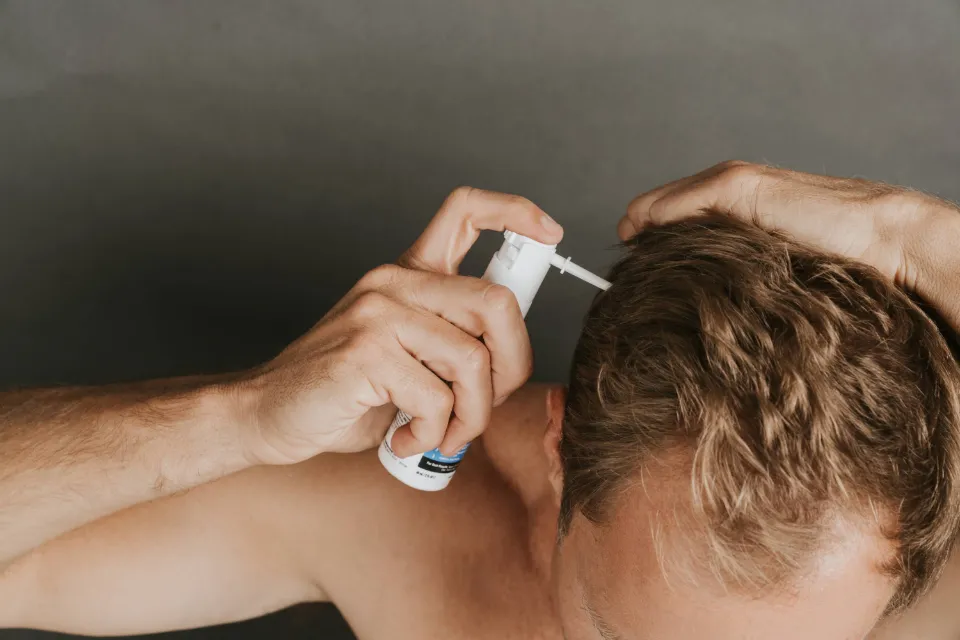
There are a few ways to stop or lessen Accutane-related hair loss. It would be a good start if you could stop taking it or reduce your dosage. However, a doctor should be consulted about this.
Numerous factors can cause hair loss. There are other options you can explore if cutting back or stopping your Accutane is not an option. According to a 2014 study, the therapy might result in a vitamin B deficiency [5]. Try to increase your intake of specific vitamins such as Vitamin B and improve your hair care routine.
Reducing stress and maintaining a healthy diet may also help prevent side effects like hair loss. It is advised to take any preventative measures you can along with your Accutane treatment to stop hair loss.
Why Might Accutane Cause Hair Loss?
Isotretinoin, a synthetic version of vitamin A, aids in reducing acne by reducing sebum production in the skin.
Accutane’s effects on the body may result in hair loss or thinning hair. For instance, Accutane might have an impact on the actual hair follicles and shafts.
Most of the time, any hair loss is temporary, and the thin hair should start to thicken again with time. But after taking isotretinoin, some individuals might observe a long-lasting change in their hair.
Reducing Hair Loss While Using Accutane
Any isotretinoin side effects should be minimal when Accutane is used properly. If a person does experience hair loss or thinning, these effects will usually be temporary.
Dermatologists personalize each patient’s treatment. To determine if a person is particularly sensitive to the effects of the drug, they will want to start with a lower dosage and watch how they respond to it.
They may then develop a treatment plan using the lowest dosage that is still effective, usually over a few months.
A person can also take a few steps to reduce any potential side effects. For example, they can:
Take Additional Medications
Doctors may also prescribe additional medication in addition to isotretinoin, depending on how the patient responds.
For instance, if a person is sensitive to the hormonal changes that cause hair loss, a doctor may also prescribe drugs such as finasteride (Propecia), which may promote hair growth.
Eat a Healthful Diet
To help prevent vitamin deficiencies, maintaining a healthy diet while taking isotretinoin may be especially crucial.
Eating a diet high in whole, natural foods and a variety of fruits and vegetables should help ensure that the hair has the nutrients it needs to stay strong.
Check out this article to learn more about the best foods for promoting strong hair growth.
Take a B Vitamin Complex
One studyTrusted Source found that isotretinoin treatment may cause vitamin B deficiency, specifically vitamin B-12 and vitamin B-9, or folic acid.
The researchers behind the study suggest taking a vitamin B supplement both before and during isotretinoin treatment. Make sure vitamins B-12 and B-9 are included in the B vitamin complex as well.
Avoid Vitamin A
Although doctors might advise taking a vitamin supplement while receiving treatment, they will probably advise the patient to stay away from vitamin A. In view of the fact that isotretinoin is a synthetic form of vitamin A, the body may experience negative effects and risks from ingesting additional amounts of this nutrient.
Reduce Stress
Stress may also have an impact on hormone levels, which might exacerbate isotretinoin side effects.
It’s critical to learn techniques for lowering stress. One can practice yoga, breathing techniques, or spending time outside.
Care for the Hair
For the individual hairs to remain strong and stop hair loss, hair care is especially crucial during treatment.
Some general hair care tips include:
- Keeping the hair moist using nourishing oils or natural leave-in conditioners
- Avoiding harsh chemicals or products that dry the scalp, such as sulfates or fragrances
- Avoiding harsh processes such as drying, curling, or blow-drying the hair with very hot air
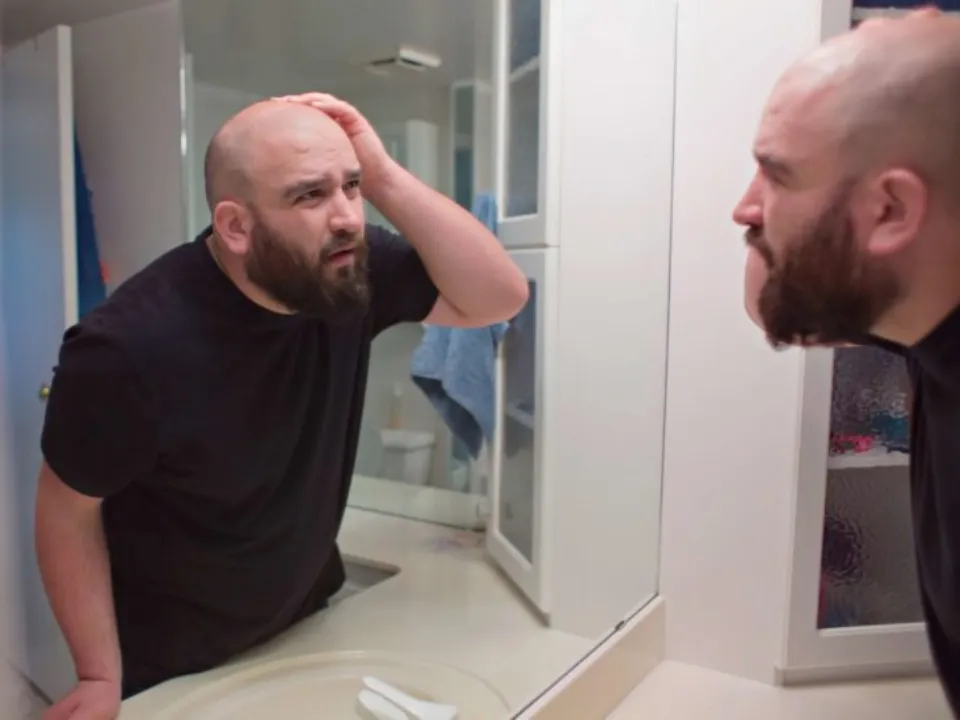
Will My Hair Loss Stop?
According to studies, hair loss caused by taking Accutane should only last a short time. No two people, however, will react in the same way. This might indicate that some people still experience hair loss even after finishing their treatment.
If the patient takes the medication as prescribed by their doctor, Accutane won’t result in permanent hair loss. They should take the dosage prescribed and find it subsides once they finish their prescription.
Summary
In some individuals who are sensitive to isotretinoin, the medication Accutane, which contains it, may result in temporary hair loss or hair thinning.
Although there may be other options if the patient experiences unfavorable side effects, doctors typically reserve isotretinoin for extremely severe cases of acne.
While taking Accutane, managing other factors may help stop hair loss. A doctor is available to anyone who has questions about their condition or its side effects.
Frequently Asked Questions
How Common is Hair Loss on Accutane?
Isotretinoin rarely results in hair loss. We must, however, exercise all prudence in order to reduce the possibility of hair loss while taking an Accutane prescription. Following medical advice and controlling other factors should be done to achieve this.
Can I Take Biotin While on Accutane?
Between Accutane and biotin, there were no interactions found. Before combining them, though, talk to your doctor.
Why Does Accutane Make Your Hair Fall Out?
According to a 2011 study, isotretinoin affects the hormone levels in the pituitary gland, which are in charge of promoting growth throughout the hair cycle, causing the drug to cause hair loss. Anecdotal reports of temporary hair loss while taking isotretinoin were made by about 10% of users.

